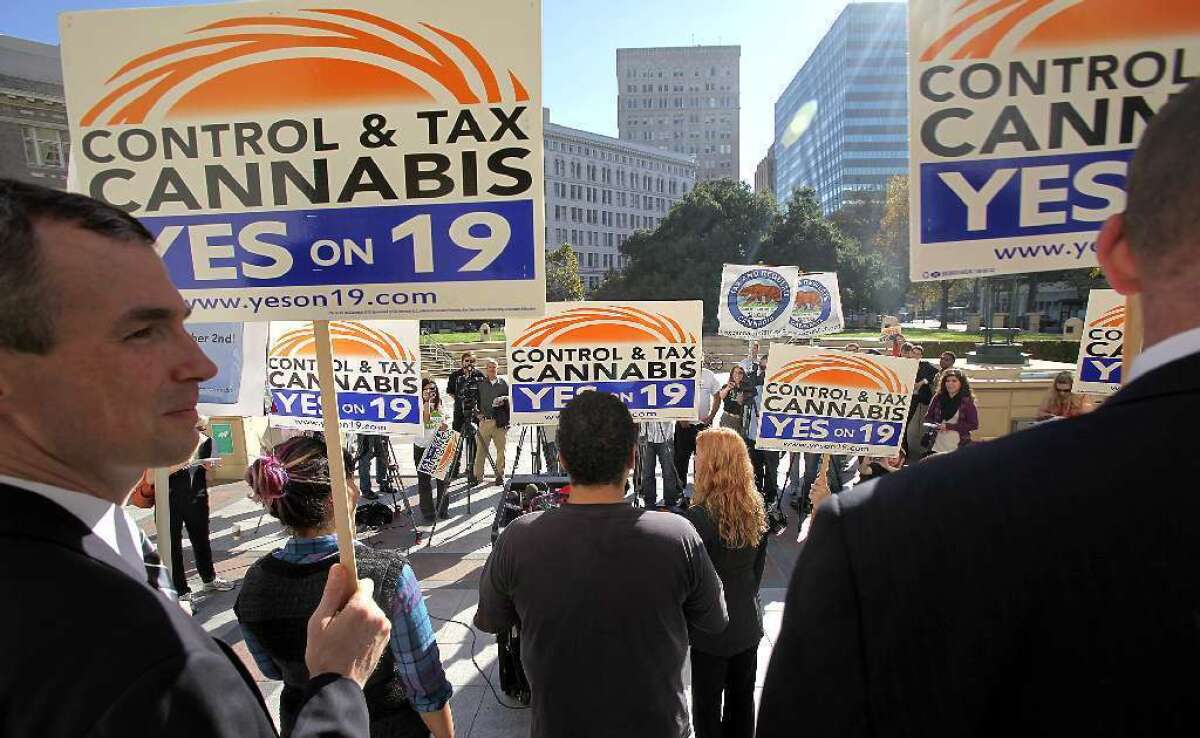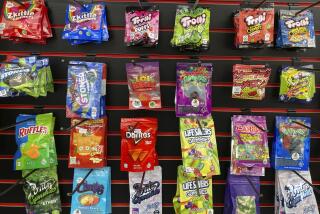Kids’ feelings about marijuana in sixth grade may predict future risk of drunk driving

Campaigns to legalize marijuana may have made 12-year-olds feel more positive about pot, according to a new study that links those positive feelings to a greater risk of future drunk driving.
- Share via
A new study of Los Angeles-area kids suggests a specific way to reduce the risk that they will drive under the influence of alcohol or drugs as teenagers — challenge their positive beliefs about marijuana, and start doing it as early as sixth grade.
Why? Compared to 12-year-olds who had negative views of marijuana, 12-year-olds who believed marijuana could help them relax or was otherwise beneficial were significantly more likely to drive under the influence when they were 16. They were also significantly more likely to ride with someone else who was buzzed, drunk or high behind the wheel, according to the study, published Monday in the journal Pediatrics.
“Youth view marijuana use as less dangerous than drinking,” the study authors wrote. “We must begin to address how changing views of marijuana might increase risk for not only marijuana use, but other behaviors.”
Driving under the influence is common among American teenagers. The Centers for Disease Control and Prevention estimates that 10% of high schoolers do so in any given month, and more than 20% have been passengers of someone driving under the influence.
So researchers from Rand Corp. in Santa Monica and Arlington, Va., went looking for risk factors in middle school that could predict these dangerous behaviors in high school. They turned to data from a substance use prevention program called CHOICE that was tested in 16 middle schools in greater Los Angeles. (As an aside, they noted that the CHOICE program did not have any lasting benefits.)
The Rand researchers focused on 1,124 students who completed detailed surveys in 2009 (when their average age was 12.2 years old), 2011 (when their average age was 14.3) and 2013 (when their average age was 16.3 and 88% were eligible to drive in California). The majority of these students (57%) were girls, and half were Latino.
Using statistical models to control for the students’ age, gender, race and ethnicity, school and whether their mothers had graduated from high school, the researchers identified several factors that seemed to predict unsafe driving at age 16.
Those who had warmer, fuzzier ideas about marijuana when they were 12 (in sixth or seventh grade) were 63% more likely than their peers to admit either driving under the influence themselves or to ride with someone who was under the influence, according to the study.
In addition, 12-year-olds who felt most confident that they could resist marijuana use wound up being 89% more likely to mix alcohol and drugs with cars, motorcycles or other vehicles. This finding surprised the researchers, they wrote.
By the time the students were 14, some of the risk factors had changed. Those who said they had used alcohol in the last month were more than twice as likely as their peers to drive under the influence or ride with an intoxicated driver two years later.
Also, those whose friends used marijuana were 2.4 times more likely to be involved in unsafe driving later, and those whose family members used marijuana were 54% more likely to do the same.
And positive beliefs about marijuana still mattered — 14-year-olds who had them were still 67% more likely to mix alcohol, drugs and motor vehicles at age 16.
The researchers noted that marijuana has taken on a benign image among middle schoolers “as medical and recreational marijuana legalization increases in our country, adolescents are becoming more accepting of marijuana use,” they wrote. “This highlights the need to address these types of beliefs as early as sixth grade.”
Follow me on Twitter @LATkarenkaplan and “like” Los Angeles Times Science & Health on Facebook.






